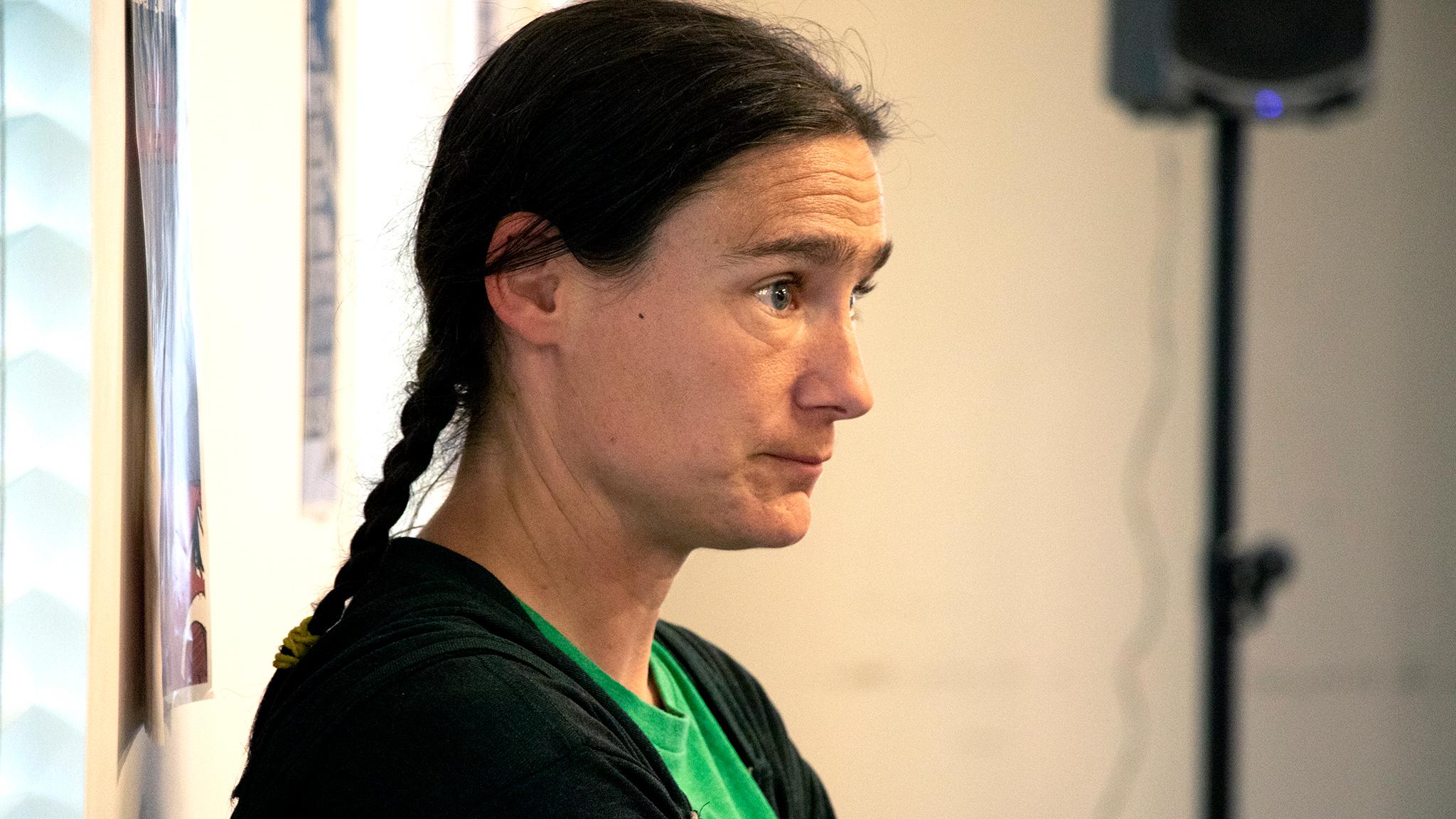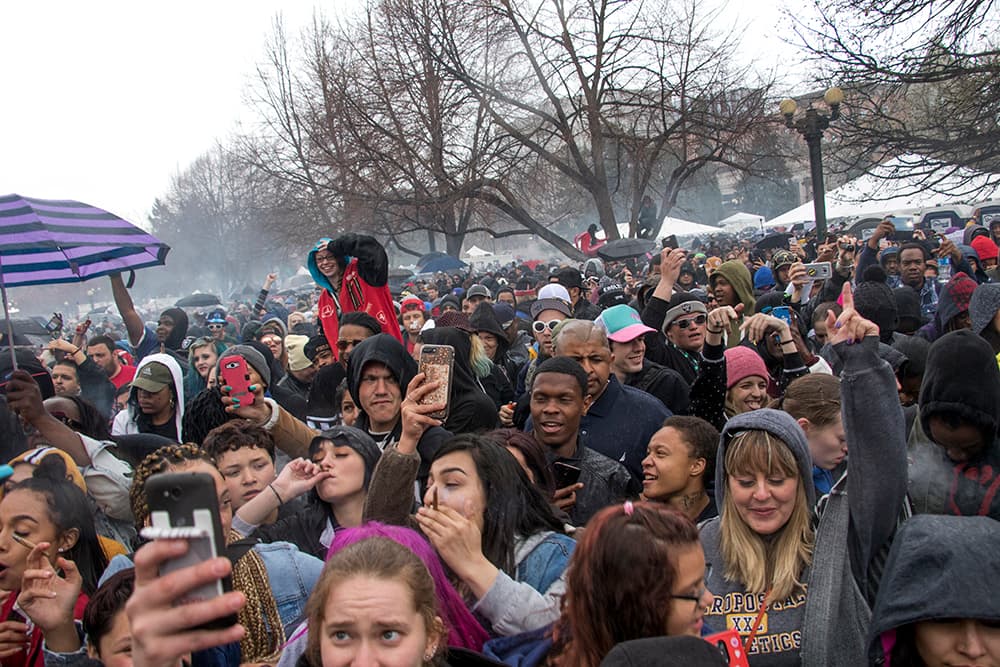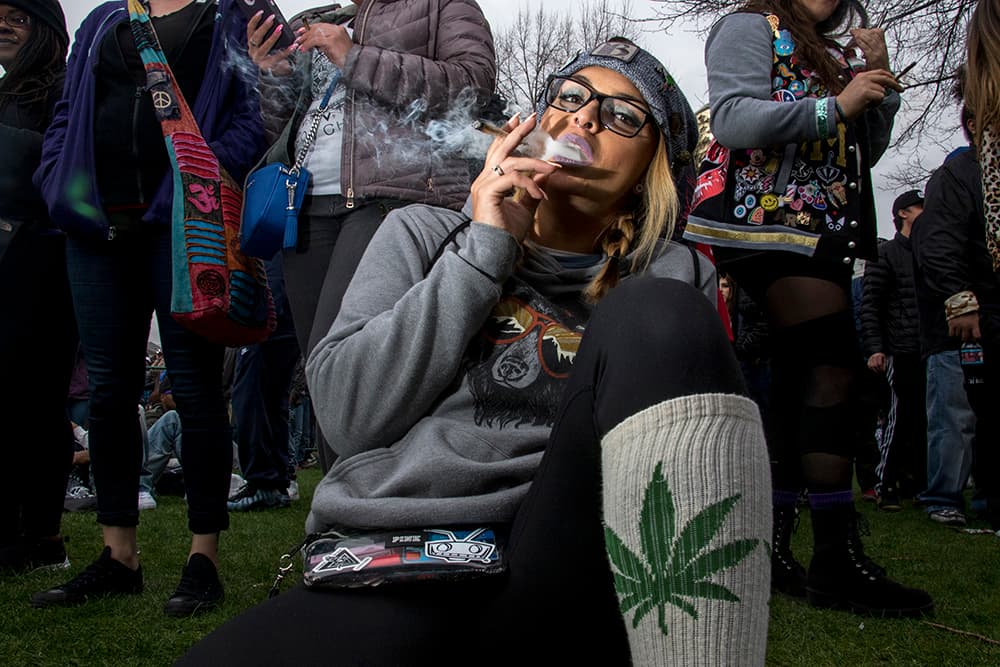An activist for a homelessness advocacy group spent a day in jail after police arrested her on a warrant that was more than a year old.
Terese Howard of Denver Homeless Out Loud was recording officers telling people to clear their belongings from a stretch of Stout Street in Five Points when she was arrested just after 8 a.m. Friday. She was released at about 6 p.m. without being required to pay bail and told to come to court next month, Howard said. She said the warrant issued in May of 2018 had a case number that corresponded to her 2016 arrest for violating Denver's urban camping ban. After a 2017 trial a jury convicted her on the camping ban trial and she was sentenced to community service, which she completed.
"I have no memory of ever being notified of a May court date in relation to the camping ban ticket," she told Denverite on Saturday.
Howard had been live-streaming her video of police approaching people in tents and stringing up yellow tape. In the video, which can be seen on Denver Homeless Out Loud's Facebook page, Howard can be heard saying she was "here to document, to ensure that they don't take anybody's property in violation of the lawsuit settlement or do anything else that would be a violation."
Later an officer can be seen approaching Howard, identifying himself -- but not asking her to identify herself -- and telling her: "You have a warrant for your arrest. You're going to be placed into custody and be taken downtown."
He asks Howard to place her hands behind her back. Howard, who cannot be seen, can be heard asking, "Why do I have a warrant?" shortly before the video ends.
Last month a federal judge finalized a settlement under which the city must give notice before removing homeless encampments and take steps to improve conditions for people living on the streets. Howard had been a key figure in helping Denverites experiencing homelessness challenge how clean-ups have been conducted and now often observes and records police and other city staff carrying out activities related to the settlement.
Attorney Andy McNulty represented the plaintiffs experiencing homelessness who sued the city over its clean-ups and worked with Howard on the case. He said Friday that her arrest "seems to be a bureaucratic misunderstanding."
Howard, who questioned whether proper procedure had been followed in Friday's clearing of the street campers, said it appeared police had planned her arrest.
"I think they did this to scare me and other activists from documenting and holding them accountable at sweeps and to get rid of me from this particular sweep," she said.
Police spokesman Jay Casillas said Howard had not been targeted because of her activities.
"When someone has a warrant ... we just have to arrest people for it," he said.
Howard said that about a week before her arrest she encountered police officers while she was monitoring enforcement of the camping ban. Those officers told her she had an outstanding warrant. She said she did not know what they were referring to and described their manner as heckling.
Casillas said Monday that the officers may have been trying to give Howard an opportunity to turn herself in. He said he did not know what had led officers to determine that Howard had any outstanding warrants. Officers often check on warrants when they stop someone for a possible traffic violation. Violations of Denver's urban camping ban also can lead to such checks.
"All I know is when officers discover someone has a warrant, they arrest them on the warrant," Casillas said.
Howard also has been working with attorney McNulty on a constitutional challenge of the camping ban, a law adopted by city council in 2012 that makes it a crime to eat, sleep or store belongings while sheltering in public with tents, tarps or even blankets. Denver voters earlier this year overwhelmingly rejected a proposal backed by Denver Homeless Out Loud to repeal the ban.
The legal challenge of the ban has brought Howard to Denver's Lindsey-Flanigan Courthouse three times, including Monday, for hearings since early October. Her duties include ensuring people experiencing homelessness are in court to tell the judge about their experiences with the camping ban.
Howard is scheduled to appear Nov. 4 in a Lindsey-Flaniganown courtroom in her own case following her arrest on Friday.














